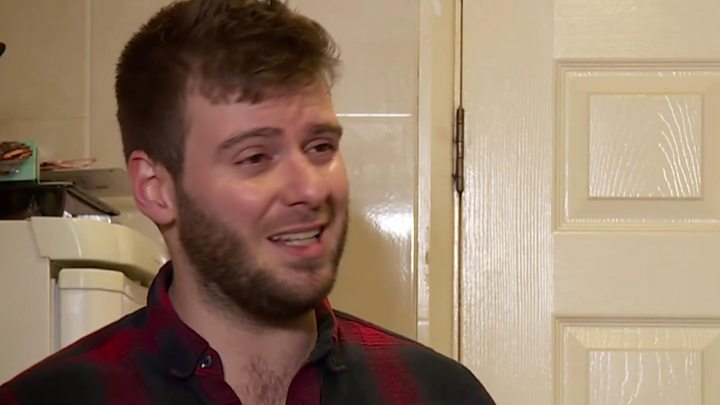The extent to which young people are locked out of the British housing market has been revealed in new figures from economists.
The biggest decline in home ownership in the last 20 years has been among middle-income 25 to 34-year-olds, the Institute for Fiscal Studies said.
In 1995-96, 65% of this group owned a home, but just 27% do in 2015-16, with the biggest drop in south-east England.
Middle earners are defined as having take-home pay of £22,200 to £30,600.
This can be either as an individual or as a couple.
A third of them are university graduates, while 30% left school at 16. Three-quarters of them live with a partner, and around 60% have children.
The proportion of these middle earners owning a home (27%) has moved closer to the likelihood of those with a low income (8%) than those on a high income (64%).
‘Money down the drain’

“I’ve been renting it for two-and-a-half years. It really is money down the drain,” the 30-year-old says.
“I don’t really see much for it – it’s not the biggest room.”
The location is handy for work, and is close to the railway station, but Mr Bourlet would prefer to have somewhere “to be proud of, and build up myself”, he adds.
However, buying somewhere is “completely beyond budget at the moment”.
“It’s absolute Mission Impossible,” he says.
“From rent, to paying for trains… all the utility bills keep shooting up. I mean, I’m nowhere near, I’m not even slightly close. I’m saving every month, but the deposit is so high that it just seems beyond reach at the moment.”
Andrew Hood, a senior research economist at the IFS, said: “Home ownership among young adults has collapsed over the past 20 years, particularly for those on middle incomes.
“The reason for this is that house prices have risen around seven times faster in real terms than the incomes of young adults over the last two decades.”


